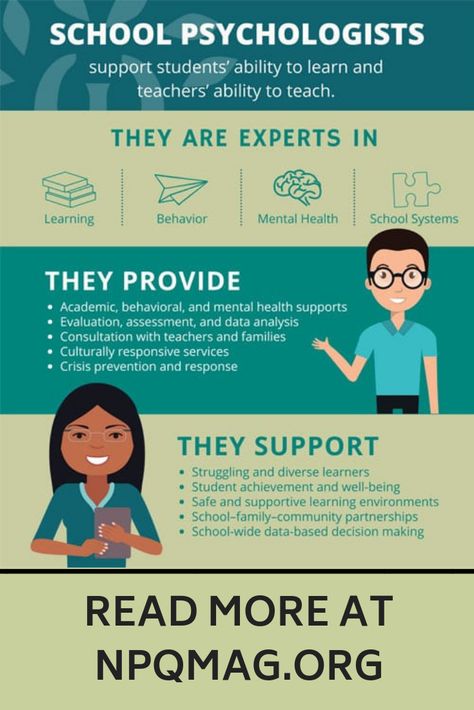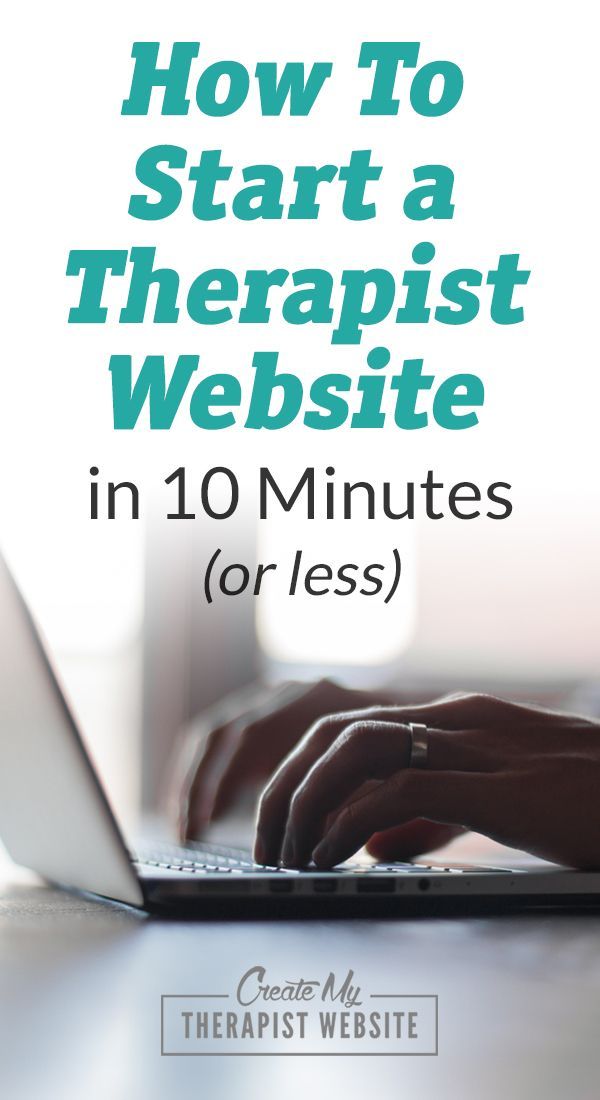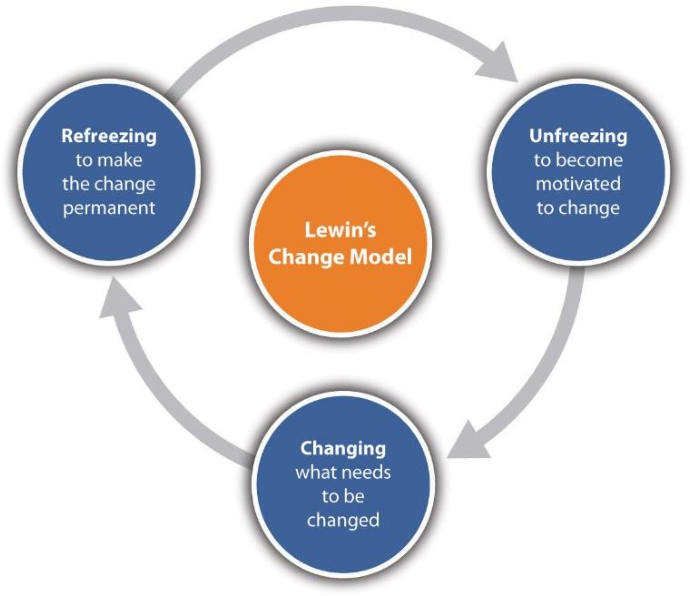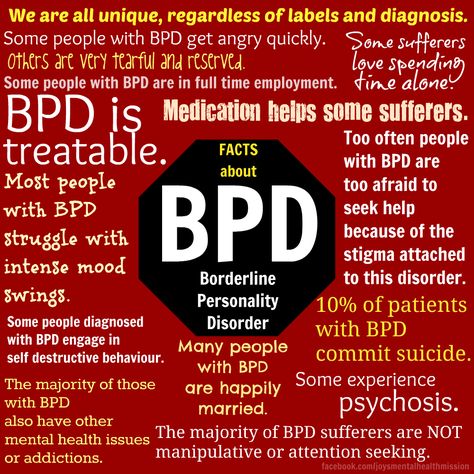Starting private practice psychologist
Are you really ready for private practice?
So you want to be a private practitioner? You're not alone. More than half of psychologists who deliver health services are primarily independent practitioners, according to the latest data from APA's Center for Workforce Studies.
But starting a practice fresh out of grad school isn't always feasible. Besides entering a difficult economy and lacking community connections, chances are you haven't yet acquired crucial financial and marketing acumen, says Steven Walfish, PhD, an Atlanta-based practitioner and president-elect of APA's Div. 42 (Psychologists in Independent Practice).
"Grad school teaches you how to be a good clinician, but no one teaches you how to run the business side of a practice," says Walfish, author with Jeff Barnett, PsyD, of the 2009 APA book "Financial Success in Mental Health Practice: Essential Tools and Strategies for Practitioners."
To prepare for the private practice path, experts advise you to:
Gain experience first
When you first leave grad school, think about working for an established group rather than trying to set up your own shop right away. By joining a group practice or taking a job in a community agency or medical setting, you can gain experience, connect with colleagues and have a guaranteed paycheck with benefits. It can also give you an inside look at how to run a business, says Dave Verhaagen, PhD, a managing partner at Southeast Psych, a large group practice in Charlotte, N.C.
"Like a lot of people out of grad school, I had no training at all in business," Verhaagen says. He opted to work for a few community agencies and then a group practice before launching his own. The experience gave him a good sense of the realities of the work world and "ideas about how I'd run my own business differently from what I saw out there," he says.
Develop a niche
While at the beginning of your practice you will probably need to take any and all clients, specialty niches tend to provide the best income and make the best use of your time and energy, psychologists say.
Think about populations you most enjoy and are best at treating, as well as what the market needs, experts advise. In Denver, private practitioner Susan Heitler, PhD, discovered a lucrative niche in marriage counseling when she noticed there were many people who wanted help creating better marriages — not just those in the throes of divorce. But there weren't many practitioners who could do that well. "You need to find something that's unique and in demand and that people are willing to pay for," Walfish says. "It will help you stand out from other practitioners."
In Denver, private practitioner Susan Heitler, PhD, discovered a lucrative niche in marriage counseling when she noticed there were many people who wanted help creating better marriages — not just those in the throes of divorce. But there weren't many practitioners who could do that well. "You need to find something that's unique and in demand and that people are willing to pay for," Walfish says. "It will help you stand out from other practitioners."
Watch market trends
Be aware of social, geographic, economic and political trends that may square with your interests, says Walfish. If you live in a city but your specialty is children and families, consider practicing in the suburbs. If you notice one market trend evaporating (the need for psychological testing to assess personality structure, for example) and another one gaining steam (say, psychological testing for adult attention deficit disorder) determine how to get on the new track in a way that suits your abilities.
Walfish speaks from personal experience: When he began practicing in the 1980s, he conducted psychological evaluations for people in residential substance abuse treatment programs. Then, managed care came along and eliminated payment for those assessments, so he began specializing in short-term therapy. Today, Walfish sees patients considering weight-loss surgery, a high-demand area that fits his skill set well. He fully anticipates changing again if the market calls for it.
"The people who have long-term success are those who can adapt to these changes," Walfish says. "Without adapting, I think practitioners can get angry, depressed, burned out and fall into learned helplessness."
Create a strong plan
That includes developing a mission or value statement for your practice, a list of whom you'd want to work with if you decide to create a group practice and a business plan. To develop your plan, tap experts in accounting, taxes and mental health law, and talk with practitioners who are already out there, Walfish says. "Don't just go on the experience of one person who is terribly successful or one person who is all gloom and doom," he says. "The more private practitioners you can talk to in the beginning, the more accurate your knowledge base will be."
"Don't just go on the experience of one person who is terribly successful or one person who is all gloom and doom," he says. "The more private practitioners you can talk to in the beginning, the more accurate your knowledge base will be."
Develop new talents
To run a successful practice, you need to learn business skills, as well as skills related to new content areas you'd like to practice in. Heitler did extensive reading to get up to speed in her area and ended up writing two well-known books incorporating what she learned, "From Conflict to Resolution: Skills and Strategies for Individual, Couple and Family Therapy" (1993) and "The Power of Two: Secrets to a Strong & Loving Marriage" (1997).
Sell yourself
It's not enough to be a good practitioner: You must market yourself, too, says Vancouver, B.C.-based practitioner Randy J. Paterson, PhD, author of the 2011 book "Private Practice Made Simple." That means giving free talks in venues such as schools and community centers. Also consider meeting with people who could refer clients to you, such as physicians, allied health professionals, educators and leaders in faith communities. Finally, be sure to use technology to your advantage — for example, building a strong website that defines your practice and draws clients to it.
Also consider meeting with people who could refer clients to you, such as physicians, allied health professionals, educators and leaders in faith communities. Finally, be sure to use technology to your advantage — for example, building a strong website that defines your practice and draws clients to it.
In general, "you need to get over the idea that your clinical competence alone will sell your practice," says Paterson. "Ultimately it will, but not at the start."
Be bold
As you develop your practice plan, envision the kind of practice you'd really like to have and how to implement it, Verhaagen says. "We realized early on that we wanted the tone to feel fun and positive, not heavy," says Verhaagen, who specializes in treating young adult males. That's why when clients walk into his practice they encounter a bookstore with free coffee and Wi-Fi. In the treatment area, he's hung movie posters on the walls and placed mannequins of superheroes including Batman, Superman and Wonder Woman — a playful way of conveying themes of strength, resiliency and a positive focus.
"Also, be sure to vet potential hires to make sure they're a good fit with your values and culture," he says. Encouraging your team to spend time socializing so that they forge good personal bonds can likewise foster a healthy practice, says Verhaagen.
Respect your worth
Some graduate psychology students may feel that dealing with money is morally wrong or even beneath them. But to be successful, you have to know and appreciate your value in dollar terms, say practitioners. Learn to be comfortable charging a fee that reflects your worth and your area's market, Paterson advises. Remember that your hourly rate encompasses business costs including your phone system, computer, test materials, assistants and time you spend outside therapy working on a client's case. Be sure to compare your rates with those charged by other professions, he adds. "People [often] pay more to take their cat to the vet than they do to see a therapist," he says.
Charging a healthy rate for your services can actually promote good therapy, Verhaagen adds. It prompts practitioners to do their best work and provides clients the incentive to work hard, he says. "We can help a lot of people and do really good work and still think very much like a business," he says.
It prompts practitioners to do their best work and provides clients the incentive to work hard, he says. "We can help a lot of people and do really good work and still think very much like a business," he says.
Diversify
Your skills can be used in a variety of interesting ways besides seeing clients. For example, in addition to providing therapy, psychologist Tish Taylor, PhD, conducts workshops for teachers and educators on dealing with children who have emotional and behavioral problems. Genie Skypek, PhD, writes software that helps social service agencies track patients. Walfish and colleagues Pauline Wallin, PhD, and Lauren Dehrman, PhD, are using their consulting skills to develop an online business called The Practice Institute, which will help psychologists gain the tools to build successful private practices. Others author self-help books, create educational CDs and DVDs, conduct forensic evaluations and run corporate retreats. Aim for a practice that is varied, balanced and in sync with your interests, Walfish says.
"We have a tremendous skill set that gives us an advantage over other mental health professions," he says. "Extending that skill set helps to create opportunities."
Tori DeAngelis is a writer in Syracuse, N.Y.
How To Start Your Psychology Private Practice: A Checklist
Starting a private practice is like embarking on a new adventure; you aren’t sure exactly where this adventure will take you, but you know you’ll encounter new challenges, find new resources, and have brand new experiences.
Whether you are a travel junkie, a homebody, or something in between, you probably know that there is a key aspect to smooth adventuring: preparation and planning. It’s true for establishing a new business, and for branching out into private practice. You don’t need plan all the details out for a successful venture, but having a few of the big things figured out ahead of time will make the journey a lot smoother.
Before you get started, we recommend trialing our professional private practice software for 30 days at just $1.
Quenza’s user-friendly digital therapy tools will help you share unique, effective e-mental health solutions with those you help, and enhance the positive impacts of your therapy for even better client results.
What Qualifications & Licenses Do You Need?
This is a very basic first step, but it’s vital! You can’t start a private practice without the necessary qualifications to provide psychological services to your clients.
It may vary depending on where you live, but in general, you will need at least a master’s degree in psychology or a related field in order to work with clients or patients. There are several majors or areas of concentration to choose from, including social work, school psychology, clinical psychology, and many more.
If you are interested in starting a psychology practice, in particular, you’ll probably want to go the psychology major route. Once you have your bachelor’s in psychology, you can move on to getting a master’s or a Ph. D. in psychology. Once you have the necessary degrees under your belt, you’ll need to complete an internship and, finally, apply for licensure in your state, territory, or country.[1]
D. in psychology. Once you have the necessary degrees under your belt, you’ll need to complete an internship and, finally, apply for licensure in your state, territory, or country.[1]
Moving from the world of employment to independent practice can be scary and confusing, but also very rewarding. You’ll need to do a lot of research, tons of planning, and prepare yourself for even more paperwork.
Starting Your Psychology Private Practice
If you’re already familiar with the licensure and qualifications necessary to practice as a psychologist, but you’re wondering how to go about starting your own private practice, you can jump in here.
Moving from the world of employment to independent practice can be scary and confusing, but also very rewarding. You’ll need to do a lot of research, tons of planning, and prepare yourself for even more paperwork.
Let’s start with a simple checklist.
How To Start Your Mental Health Practice: A Checklist
Once you have the very basics figured out (e. g., education, license, any other necessary qualifications), you’re ready to begin planning out your practice.
g., education, license, any other necessary qualifications), you’re ready to begin planning out your practice.
Here’s a handy checklist to help you get started:
- Have a business plan in place
- Designate your workspace
- Outline your practice’s policies
- Check out insurance provider panels
- Choose your private practice software/platform tool(s)
- Build your paperwork library
- Market your practice
Making A Business Plan: 2 Examples
You might not think you need a business plan as a helping professional, but it’s highly recommended that you create one. It can’t hurt to have one in place, and it will act as a helpful guide as you establish your business and get it up and running.
When drafting your business plan, make it as detailed as possible. It needs to cover the basics: what your business does, how it does it, and why it does it.
Recommended: Business Coaching: What It Is, Who Needs It, & How It Works
Nothing in your business plan is set in stone—after all, you can always update your plan to suit the reality of your practice—but it should be a detailed, in-depth resource on how you intend to run your practice.
Private Practice Business Plan Template
Your plan should include:
- How much money you need to make each year to keep practicing.
- How much you need to bring in each year to live the life you want.
- Financial goals (e.g., earning enough to rent a better office space or hire a second therapist).
- Your marketing plan.
- Goals for the first months, first year, and first 5 years. This enables you to track your progress and assess whether your plans are realistic as you hit various benchmarks.
- Funding options (e.g., your own personal savings, potential investors, loans).
- A loan repayment plan (if you need a loan).[2]
Example Business Plan: Psychology Private Practice
The Business Plan Shop offers a great example of a practical outline for a straightforward but comprehensive business plan.
Not all sections may apply to you, but it offers a good template:
- Executive Summary (e.g., business overview, market overview, financial highlights)
- Company (e.
 g., structure, history, location)
g., structure, history, location) - Products and Services
- Market Analysis (e.g., demographics, market need, regulation)
- Strategy (e.g., pricing, marketing plan, milestones)
- Operations (e.g., personnel plan, key assets, and IP)
- Financial Plan (e.g., start-up funding, assumptions, forecast)
- Appendix[3]
If the idea of a one-page business plan sounds good to you, Power Diary also offers some examples to help you craft your short and sweet, actionable business plan.[4]
9 Best Practice Management Software Systems to Use
When you have a business plan in place, a designated space for your practice, and some policies and procedures lined up, you have one important step to go before you can start marketing and taking on clients: you need to choose a practice management software.
Good practice management software will make your life in private practice much easier.
It should be able to help you with some of the most important but cumbersome parts of running your practice: creating and administering treatment plans, bringing new clients on board, invoicing and billing, documentation, scheduling, and more.
Fortunately, you have tons of options to choose from. There are a wide variety of software solutions that can help you manage your practice, and they offer an even wider variety of features.
Nine of the best solutions currently available are outlined below, but there are many more options a quick web search away.
| Solution | Details |
|---|---|
Power Diary includes features like:
| |
| Name | Power Diary |
| Price | $5 – $60/week |
| Good For | Coaching Management, Practice Management, Physical Therapists, Occupational Therapists, Speech Therapists, Mental Health Coaches, Wellness Coaches, Business Coaches, Counselors, Teletherapists, E-counselors, Online Coaches |
| Website | https://www. powerdiary.com/ powerdiary.com/ |
| Solution | Details |
|---|---|
Simple Practice includes features like:
| |
| Name | Simple Practice |
| Price | $39 – $59/month |
| Good For | Coaching Management, Practice Management, Digital Health, Telehealth, Telepsychology, E-Mental Health |
| Website | https://simplepractice.com/ |
| Solution | Details |
|---|---|
Quenza includes features like:
| |
| Name | Quenza |
| Price | $1/month and up |
| Good For | Treatment Planning, Care Management Software, E-Psychology, E-Therapy, Online Coaching, Therapists, Psychiatrists, Counselors, Telepsychiatry, Teletherapy |
| Website | https://quenza.com/ |
| Solution | Details |
|---|---|
TherapyNotes includes features like:
| |
| Name | Therapy Notes |
| Price | $49 – $59/month |
| Good For | Coaching Management, Practice Management, Digital Health, Telehealth, Telepsychology, E-Mental Health, Mental Health Coaches, Wellness Coaches, Business Coaches, Counselors, Teletherapists, E-counselors, Online Coaches |
| Website | https://therapynotes. com/ com/ |
| Solution | Details |
|---|---|
Kareo includes features like:
| |
| Name | Kareo |
| Price | $80/month and up |
| Good For | E-Therapy, Telehealth, Private Practice Software, Customer Relationship Management, Physical Therapists, Occupational Therapists, Speech Therapists, Mental Health Coaches, Wellness Coaches, Business Coaches, Counselors |
| Website | https://www.kareo.com/mental-health/ |
| Solution | Details |
|---|---|
Solution includes features like:
| |
| Name | Coaching Loft |
| Price | Free – $95/month |
| Good For | Coaching Management, Mental Health Coaches, Wellness Coaches, Business Coaches, Counselors, Practice Management, Teletherapists, E-counselors, Online Coaches |
| Website | https://www. coachingloft.com/ coachingloft.com/ |
| Solution | Details |
|---|---|
Solution includes features like:
| |
| Name | BestNotes |
| Price | $50/month and up |
| Good For | Therapy Notes, General Healthcare, Telepsychiatry, Physical Therapists, Occupational Therapists, Speech Therapists, Mental Health Coaches, Wellness Coaches, Business Coaches, Counselors |
| Website | https://bestnotes. com/ com/ |
| Solution | Details |
|---|---|
TheraNest includes features like:
| |
| Name | TheraNest |
| Price | $39/month and up |
| Good For | Practice Management, Physical Therapists, Mental Health Coaches, Wellness Coaches, Counselors, Teletherapists, E-counselors, Online Coaches |
| Website | https://theranest.com/ |
| Solution | Details |
|---|---|
Solution includes features like:
| |
| Name | Therabill |
| Price | $149/month and up |
| Good For | Practice Management, Physical Therapists, Mental Health Coaches, Wellness Coaches, Counselors, Teletherapists, E-counselors, Online Coaches |
| Website | https://www. therabill.com/ therabill.com/ |
A Note on Opening A Group Practice
So you’re thinking about starting a group practice?
There are additional pros and cons to starting a group practice, aside from the pros and cons of starting an independent private practice. You get to share the burdens of running a business, but you also have increased risk and complexity as you add business partners.
Therapist Amanda Ruiz notes that you should be asking yourself six questions before opening a group practice:
- Should I start a group practice? (aka, why do I want to start a group practice, what do I hope to gain from it)
- Do I have a system in place?
- Should I write a business plan?
- Should the group specialize?
- Do I want to accept insurance?
- Should I hire IC vs. W-2?[5]
You should be able to provide firm answers to each of these questions before starting your group venture.
Make sure you give some thought as to why you want to add more providers to your practice, whether you have a solid system in place that can handle additional providers, and where you plan to go with your group practice.
6 Helpful Books About Starting a Private Practice
If you want a more in-depth guide to starting your psychology private practice, there are several books that may help.
Here are the top 6:
- Getting Started in Private Practice: The Complete Guide to Building Your Mental Health Practice by Chris E. Stout and Laurie Cope Grand
- How to Thrive in Counseling Private Practice: The Insider’s Guide to Starting and Growing a Therapy Business by Anthony Centore
- Book Yourself Solid by Michael Port
- Private Practice Essentials: Business Tools for Mental Health Professionals by Howard Baumgarten
- Be a Wealthy Therapist by Casey Truffo
- Starting Your Private Practice: A Step-by-Step Guide for Mental Health Counselors by Maryanne L. Duan
Final Thoughts
It can be nerve-wracking to start your own psychology private practice, but with a little forethought and some planning, you’ll be ready to open your (physical or virtual) doors and start changing lives, one client at a time. Ruiz, A. (2019). 6 questions to consider before starting a group practice. Retrieved from https://www.simplepractice.com/blog/6-questions-to-consider-before-starting-a-group-practice/
Ruiz, A. (2019). 6 questions to consider before starting a group practice. Retrieved from https://www.simplepractice.com/blog/6-questions-to-consider-before-starting-a-group-practice/
How to organize a private practice of a psychologist? | Online
Beginning psychologists often ask the question “how to organize the practice of a psychologist”? Where to start working? How to decide on the first consultation? Where to get clients? How to declare yourself a psychologist?
The questions and tasks faced by the young specialist are very similar.
Tedious, boring, painstakingly and step by step I will explain each stage of creating a private practice of a psychologist.
If any of your colleagues need advice, you are welcome, you can work both on the proposed technology and in an individual approach, systematically or pointwise.
Material, with reservations and adaptations, can be used as a template for setting up private practice in other professions.
You can learn something useful for yourself also for the situations “lonely, I want friends” or “lonely, I want mutual love”.
Sponsors and investors of young psychologists - parents and spouses can get a realistic, detailed picture of the private practice of a psychologist in Russia.
People who dream of working according to their vocation, getting a second higher education and changing their current job to the profession of a psychologist will be able to orient themselves and outline the necessary steps and reserves of resources and strength for the transition.
I suspect that one of my clients might be interested in the practice section. I'll be honest with you, there isn't much here. Everything is prosaic, ordinary and useful only to those for whom it is relevant.
In the open version, I will write clarifications - for which year the information was relevant.
Perhaps the most boring introduction in the world I wrote :)
We can move on to the content.
Oh yes. About myself!
Today, June 2017, I am a private practice psychologist, family psychologist.
I invite clients to the office at Novosibirsk, Frunze, 5-515 or via Skype. I do text consultations.
* * As of May 2021, I am a psychologist in private practice, an online psychologist.
For more than a year I have been working only on Skype (video) and in text format.
I am a clinical psychologist by training. I work in an integrative direction.
NSU, Tyumen State University, 09/11/1974, schema therapy, CBT, scenario analysis, art and integrative approach
I love and respect my clients. I really appreciate my work. I like to be in a professional field, from simple communication to master classes, discussions, intervisions, etc.
I am open to communication, questions and discussions.
https://vk.com/id21819331 - a page in VK, almost every day fresh notes on practical psychology.
https://www.youtube.com/channel/UCKfLBFvL60_c87d0FTY686g - my YouTube channel, video cycles about love addiction, about loneliness and ways out of it, about needs and much more, answers to questions
https://wmt1227 .ru/ - hundreds of texts about relationships, loneliness, emotional dependence.
About pain and difficulties in relationships with mom and/or dad.
Answers to a question for a psychologist. It is possible to ask a psychologist a question and get a free open answer on the Web
Working hours, work formats, cost and contract for Skype
https://psy-novosib.ru/ - a lot of videos and texts on the topics of script in life, procrastination and success, issues of choice and decision making, personal lifestyle
https://psynovosib.ru/ - materials about adult children alcoholics, various personal radicals (narcissistic, anxious, depressive) and age-related and existential crises
https://xn--1227-f4d3dwa.xn--p1ai/ — all about schema therapy and a bit about anxiety and depression
https ://wmt1227. com/ - diary of a psychologist, online psychologist Alexandra Pavlovskaya
com/ - diary of a psychologist, online psychologist Alexandra Pavlovskaya
https://ridero.ru/books/tupiki_v_otnosheniyakh_odinochestvo/ here you can buy an electronic version of the book “Impasses in relationships. Loneliness"
https://ridero.ru/books/kak_perezhit_razvod/ - here you can buy an e-book "How to survive a divorce?"
The content of the cycle "How to organize a private practice of a psychologist"
Private practice of a psychologist. Myths and reality. How to start?
Where to get clients? Where to get clients? How to find clients?
Where and how to inform as many people as possible about your offer?
How can I show psychologist's consultations?
Competition among psychologists. Why does the client choose you?
Organizational moments. Office, individual entrepreneur or LLC, schedule.
Training, statuses. Experience, practice. Specialization.
If you can not be a psychologist…
Over a cup of raspberry tea: an interview with renowned St. Petersburg psychologist Yulia Bogacheva.
Natalia: Yulia, you have such a busy life - you lead individual appointments and therapy groups, a professional development group for psychologists. And some time ago you were a project manager at VEGI (East European Gestalt Institute). As far as I know, most professionals are primarily interested in private practice. Is it important for you to combine all these areas?
Julia: I never wanted to be a manager. But in 2003 there was a crisis at the institute (VEGI - author's note) - one of the founders left - and three "green" girls, among whom I was, decided to create an organizing committee. That's how it all started. I was a manager until 2009.
Natalia: So you first became a manager and then a teacher at VEGA?
Yulia: Not really. It went in parallel. Management concerns are separate, participation in the training programs of the institute and passing exams for a certificate are separate. After certification, I began to lead the VEGA first stage group - this is a long-term therapeutic group. Led her for four years (2008 - 2012), it was an interesting and developing experience. But I also completed this project. Now I work as a private psychologist, individually and with groups.
It went in parallel. Management concerns are separate, participation in the training programs of the institute and passing exams for a certificate are separate. After certification, I began to lead the VEGA first stage group - this is a long-term therapeutic group. Led her for four years (2008 - 2012), it was an interesting and developing experience. But I also completed this project. Now I work as a private psychologist, individually and with groups.
Natalia: Everyone who graduates from your institute is offered to work with students, how was it with you?
Julia: No, only those who have passed the certification can do this. And there are very few of them, about one in twenty graduates.
Natalia: Is it too hard?
Julia: Yes, VEGI has a very complicated certification procedure and not everyone wants to go through it. The certification includes three stages of the exam. The first is a written theoretical exam. You need to answer four questions within four hours. The second part is an oral theoretical exam. And the third is public psychotherapeutic work. This is either a client session in a group, or a session with a client in the presence of three supervisors.
You need to answer four questions within four hours. The second part is an oral theoretical exam. And the third is public psychotherapeutic work. This is either a client session in a group, or a session with a client in the presence of three supervisors.
In addition, these steps are separated in time. The exam requires the presence of at least three coaches, and they live in different cities. We have to wait for the next VEGA conference and the exam can stretch for a year and a half. However, as far as I know, the “original source” of this certification system was the Gestalt Associates Training Los Angeles (GATLA), it is they who are so difficult. But the presence of such difficulties is a guarantee of a high level of graduate training.0004
Natalia: Yes, it's really difficult. It would be interesting for novice psychologists to see all this “from the inside” ... Could you give an example of an exam question?
Julia: Of course. Most of the questions are theoretical. For example: Phenomenology. History, founders, philosophical and clinical essence, perspectives” or “The concept of “experiment” in Gestalt therapy. The place and role of the experiment in the clinical gestalt session. But there are also personal questions: “What case would you not take as a therapist?”.
Most of the questions are theoretical. For example: Phenomenology. History, founders, philosophical and clinical essence, perspectives” or “The concept of “experiment” in Gestalt therapy. The place and role of the experiment in the clinical gestalt session. But there are also personal questions: “What case would you not take as a therapist?”.
Natalia: Were there cases of unsuccessful certification procedures?
Julia: Yes, I remember a case in 2001, when a specialist passed the theoretical part perfectly, but did not cope with the practical work.
Natalia: Wow, what didn't work out?
Yuliya: He had a public session that was underestimated by supervisors and failed to justify his therapeutic interventions. Of course, in public work with a client, the therapist cannot always show his best sides, but it is important to be able to justify the choice of one or another area of work and outline prospects.
Natalia: Does this mean that this person cannot become a therapist?
Julia: Not at all. There is always an opportunity to retake the exam! To be honest, we are only now beginning to understand the importance of certification documents. After all, for a long time psychotherapy in our country was informal.
Natalia: How do people find out about you, how do they come to therapy?
Julia: For the most part, this is due to personal contacts - either I crossed paths with a person in some other area, or colleagues informed me about me. Some part comes through the Internet - from Vkontakte, other sites where I post something. By the way, there were cases when people asked questions about counseling after reading my poems on poems.ru, although this is not a specialized source at all ...
Natalia: I'm wondering if people respond to Twitter in any way?
Julia: No. I think this is due to the peculiarities of this resource - 140 printed characters, reading tweets "obliquely", attention does not linger. This, in my opinion, is a news format, short, and a psychologist is usually chosen slowly and carefully, they look at his articles, information about him.
I think this is due to the peculiarities of this resource - 140 printed characters, reading tweets "obliquely", attention does not linger. This, in my opinion, is a news format, short, and a psychologist is usually chosen slowly and carefully, they look at his articles, information about him.
Natalia: Julia, can you comment on the theory about the two-year cycle of selling psychological services? How long does it take from the moment a person finds out about you to the moment they sign up for a consultation? It seems to me that this information is of great interest for beginner practitioners.
Julia: In my experience, it takes from three to six months to several years.
Natalia: Do you think that private practice can now be the main source of income?
Julia: I think yes, if you concentrate on it.
Natalia: What do you mean?
Julia: Do not scatter. I, like many others, had the idea to look for a source of income in another area, but I understood that then it would be difficult to develop the psychological practice properly. Still, if you develop slowly and systematically, then the practice will be successful.
I, like many others, had the idea to look for a source of income in another area, but I understood that then it would be difficult to develop the psychological practice properly. Still, if you develop slowly and systematically, then the practice will be successful.
Natalia: Do you know any examples when a psychologist devotes himself entirely to practice and is successful as a businessman?
Julia: Yes, and not alone. People work in several organizations on a freelance basis, conduct seminars, have an extensive private practice.
Natalia: In your opinion, what helps them practice so successfully?
Julia: It is obvious that they have many "points of contact" with people and formed "word of mouth", fame in medical circles, teaching activities.
Natalia: A professional reputation has been formed…
Yulia: Yes, and colleagues willingly refer clients to them.
Natalia: So, does the redirect work?
Julia: Working.
Natalia: When you recruited the first stage group for psychologists, what kind of people came?
Yuliya: You know, maybe it has something to do with my personality, but those people who came for interviews are mostly not psychologists. They went for psychotherapy, they wanted to know something about themselves. And even those psychologists who came to my group are less focused on learning.
Nataliya: Did I understand correctly that there were more “non-psychologists”?
Julia: Yes.
Natalia: But wasn't it always like this?
Julia: For example, in my early groups, there were mostly only professionals. Sometimes, however, there is another process - one participant came in the direction of an individual therapist, and then decided to enter the faculty of psychology.
Nataliya: Yes, we have such a sphere - there is no turning back! I remember the name of your group: "200 hours for myself." Sounds like an invitation to slow thinking...
Yulia: This is exactly the meaning!
Nataliya: Why exactly two hundred?
Julia: This corresponds to the standard of the first stage of VEGA. The Institute works according to the international standard when a therapist needs to acquire a group "client" experience in such a volume. It's two years - ten three-day seminars. In general, during this time you can already realize something about yourself, understand who you are ...
Natalia: Such a space for self-exploration?
Julia: Self-exploration and experimentation - you can understand yourself and try new ways of self-expression.
Nataliya: In one of your interviews you said that VEGI is an American variant of Gestalt therapy, does this mean that you yourself practice in American traditions?
Julia: When I started working, it really was closer to what they do in the Los Angeles school. But later I studied in other traditions, other schools. For example, working with group dynamics - I studied with Sean Gaffney (Sweden). And she received specialization in Body Mind Gestalt from Arie Burshtein (Israel).
But later I studied in other traditions, other schools. For example, working with group dynamics - I studied with Sean Gaffney (Sweden). And she received specialization in Body Mind Gestalt from Arie Burshtein (Israel).
Natalia: Is the Los Angeles School some kind of authoritative organization for a Gestaltist?
Julia: Yes, they are quite famous in the world. In 2012, by the way, they held their 40th annual summer intensive. Imagine, intensive every year, and so 40 years!
Natalia: Wow! It seems to us in Russia that there is so much new around, so much interesting - psychological practice here is still in its infancy, but for them it's just some kind of routine!
Julia: They have established themselves as a school, their style has developed.
Natalia: Julia, has it ever happened that a person came to your group with the intention of becoming a psychologist, and then realized that this profession was not suitable for him? I remember you were talking about a colleague who decided to change her profession to become a manicurist. ..
..
Julia: And she is still happy with it! There were cases when people went to designers. Someone decided to devote himself entirely to the family ...
Natalia: Personal therapy works! Is it possible to talk about some kind of portrait of a Gestalt student, what kind of person is this?
Julia: If we talk about “200 hours for myself”, then it was twenty-five to thirty-five years old, about 2/3 women. If not a psychologist, then HR, for some reason IT people often come. In general, this is not a very young person, because in order to participate in such a program, one must have a mature interest in oneself, the experience of reflection and a taste for working on oneself.
Natalia: Some kind of predisposition is needed…
Yuliya: Yes, and clients - "non-psychologists" are so "advanced" now!
Natalia: Indeed, sometimes you think that someone is sending them!
Julia: An economist girl comes and formulates a request to work with me as "a desire to meet my feelings. " And it turns out to be a true request!
" And it turns out to be a true request!
Natalia: I was also surprised by this in my practice. Yulia, as a mentor of young professionals, what typical mistakes do you notice in their work?
Julia: The main mistake, in my opinion, is that they are trying to do something "with" the client - to cure, to save. They want to be good therapists, to achieve some result.
Natalia: So they treat a person as an object?
Julia: Yes, instead of just "being" with the client in human contact, they try to "do" something with him.
Nataliya: On the one hand, people come to humanistic psychotherapy because the idea of “presence” is close to them, but this is exactly what they fail to do?!
Julia: It's hard to be truly present. My last project in this area is the professional development group “Everyday life of a psychotherapist: To be, not to seem. ” There we focus not on the techniques of “what to do with the client”, but on the process of therapy - “how to be a therapist” and what to rely on, what to look for support for a working specialist.
” There we focus not on the techniques of “what to do with the client”, but on the process of therapy - “how to be a therapist” and what to rely on, what to look for support for a working specialist.
Natalia: Approximately at what time of study do students begin to cope with the task of being present?
Julia: Very individual. Some take a year, some six months. Some people fail for a very long time. Someone has already had the experience of a vivid meeting with people who know how to be present and lived and felt it from the inside, it is much easier for them.
Natalia: Do you have “favorites”? It's always interesting for the band members to know what the host "deep inside" thinks of them!
Yulia: The word “favorites” is not very appropriate, rather I can think about who is easier for me and who is harder with as a therapist and facilitator. And it’s easier for me with people who are ready to “meet” with themselves, with me and with other members of the group. Because presence is also my value. I am very happy when someone shares it. Even when we talk about “difficult” topics, I think to myself: “wow, this is for real, this is life!”.
Because presence is also my value. I am very happy when someone shares it. Even when we talk about “difficult” topics, I think to myself: “wow, this is for real, this is life!”.
Natalia: Such a "barometer" of authenticity!
Julia: Yes, perhaps, it's about authenticity.
Natalia: What do these groups mean to you?
Julia: It's hard for me to express it, although there are many feelings. It's like when people come to first grade and I give them the Primer. This is a metaphor about self-knowledge, about the fact that it becomes important for people how they live, about the fact that they bring our joint experience to life.
I also often fall in love with my bands when they create a space where it is possible to touch deep feelings, where a lot of warmth is born. This is very inspiring, overwhelms me with gratitude and sympathy for the participants.
Natalia: You accompany them in their personal development, you feel some involvement in the changes that may occur in them…
Yulia: understand what matters more to them.
 g., quotes, videos, PDFs)
g., quotes, videos, PDFs)













